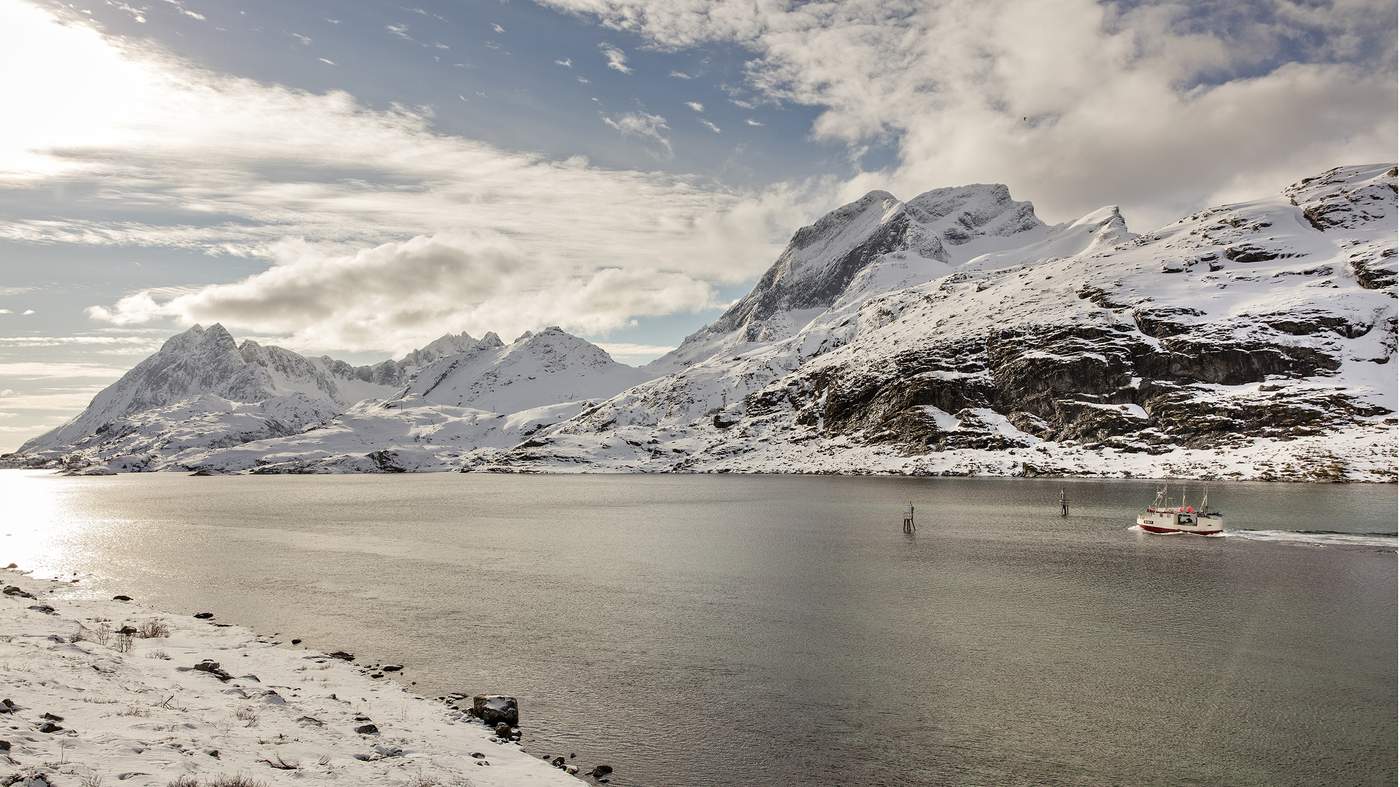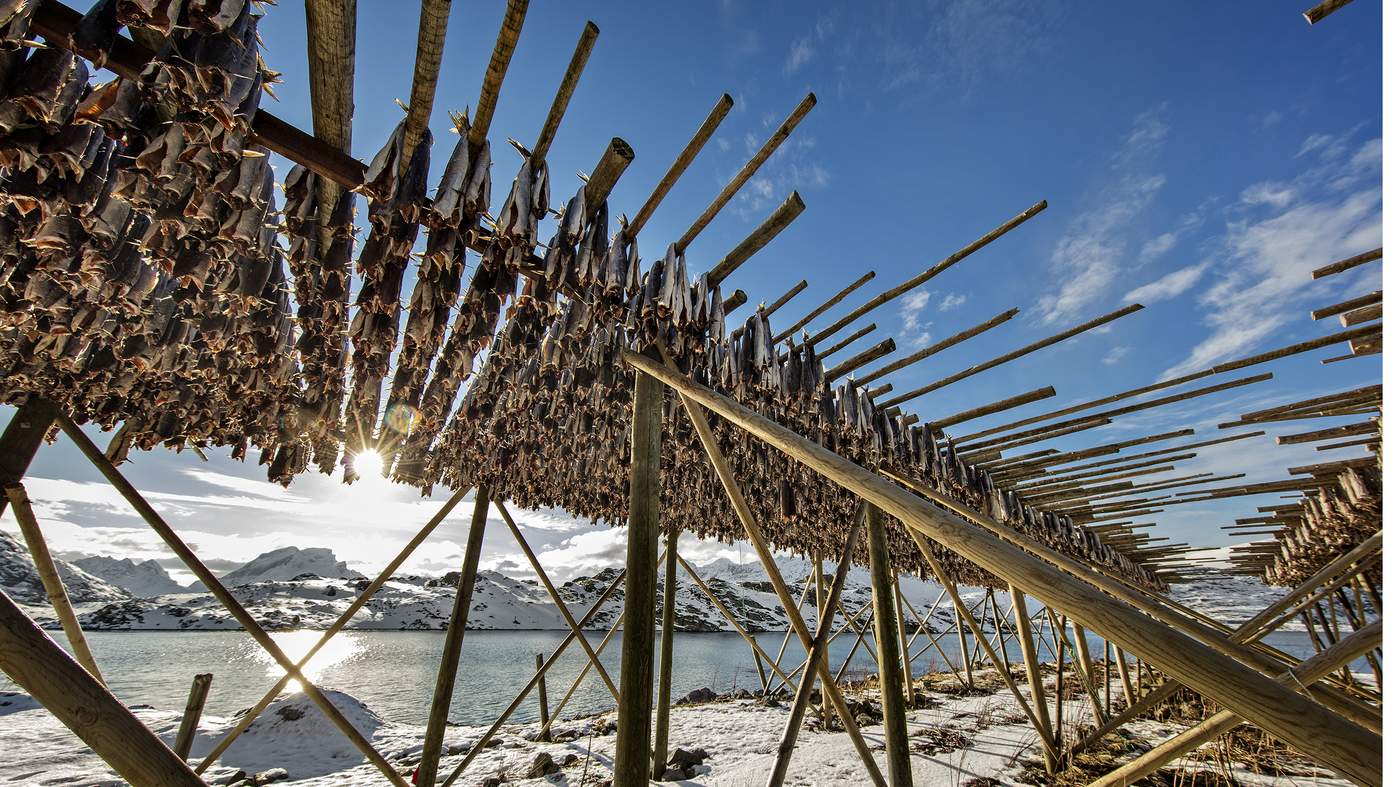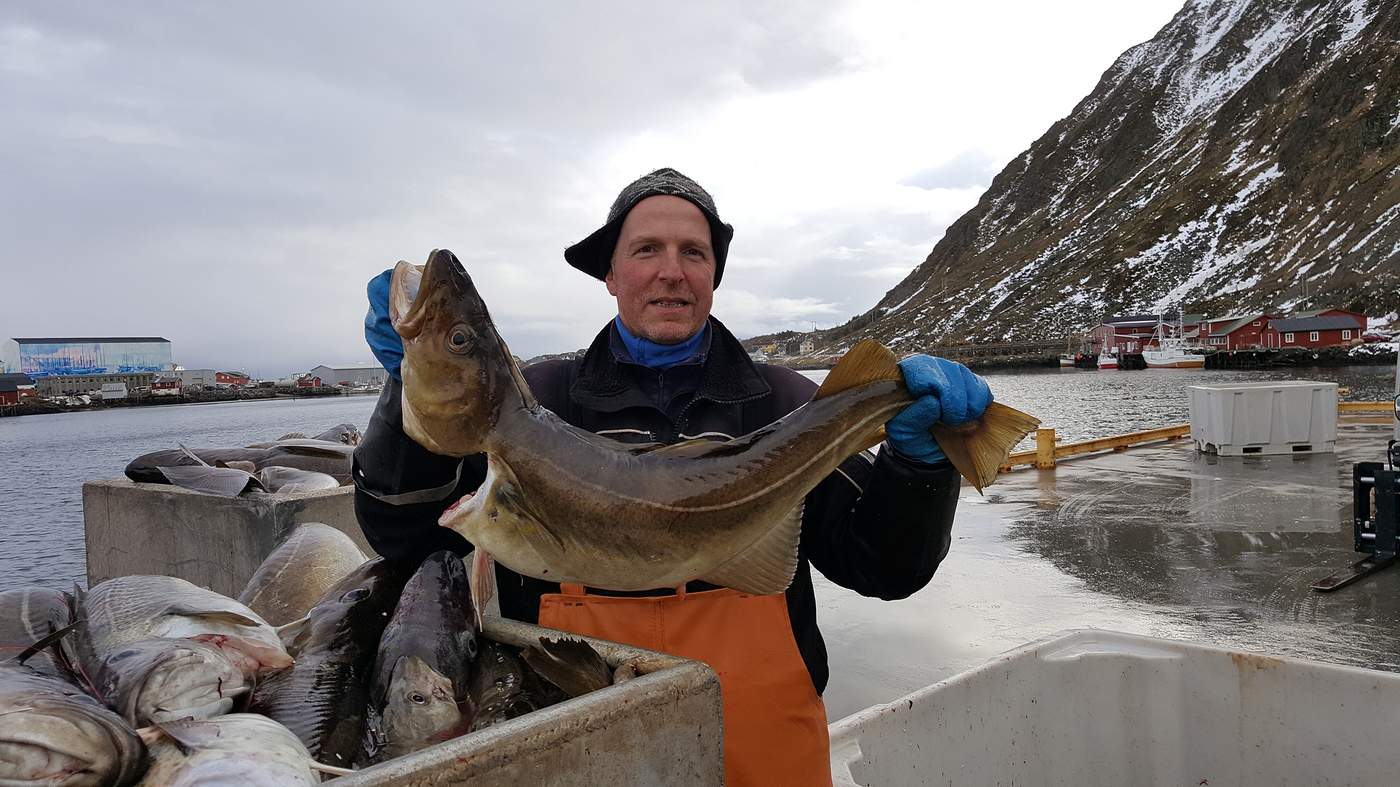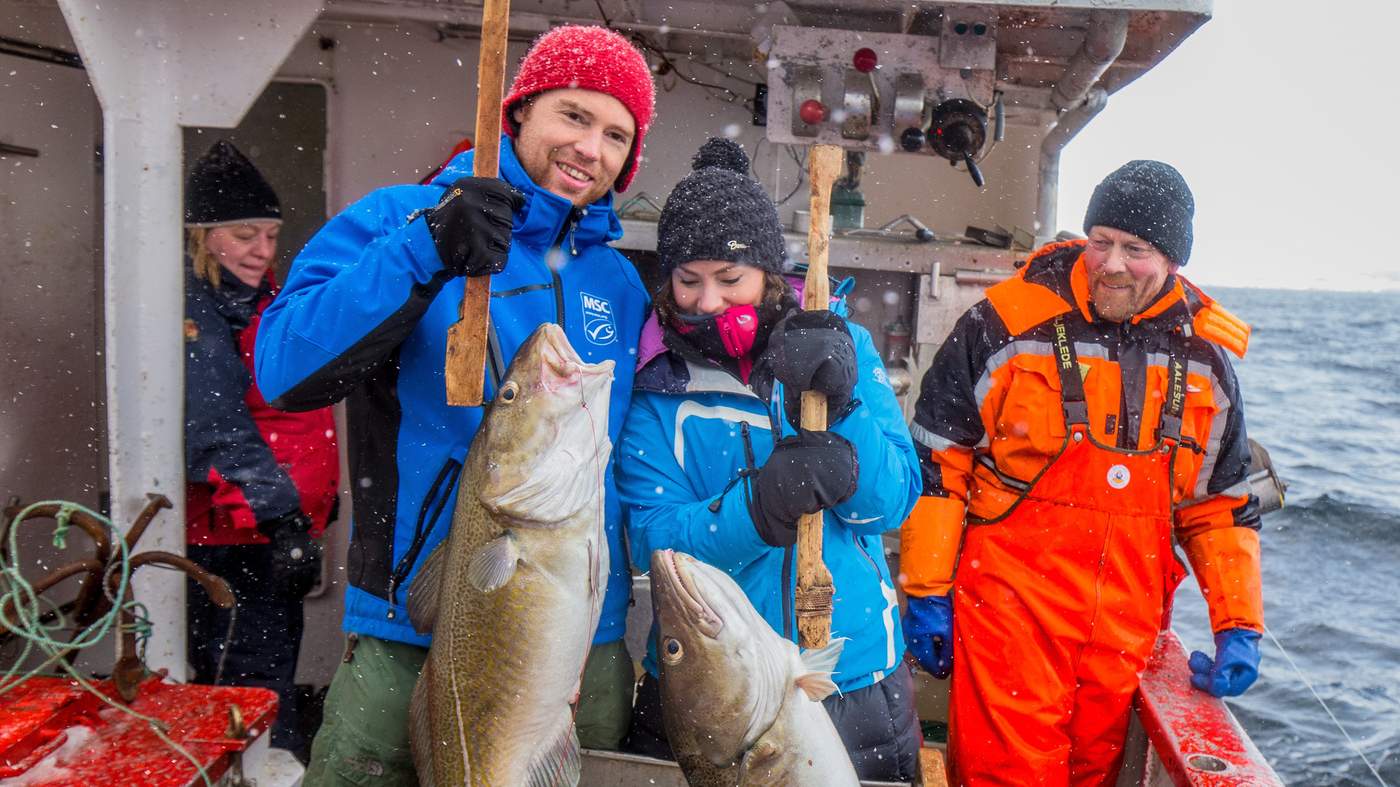At 5am in a Norwegian fishing village, it isn’t so much the arctic wind that’s keeping me awake, as the biting aroma it carries. In a narrow lane at the edge of Ballstad’s harbour, a macabre scene reveals the source of the scent: rows of fish, heads removed, swing uneasily in the breeze.
These fish are skrei, which translates as “wanderer cod”. They are at the end of an epic journey that began hundreds of miles to the north in the Barents sea, the body of water that separates Europe’s northernmost reaches from the polar ice cap. They have returned to their birthplace in the icy waters surrounding Norway’s remote and starkly beautiful Lofoten islands to spawn. All the hard swimming on the homeward leg has given them a firm texture and distinctive taste that is increasingly prized by high-end chefs, fishmongers, and retailers.
I can’t wait to see what all the fuss is about, but first, I have to catch some.
A short time later, we slide out across the glassy calm of the Vestfjord aboard the fishing boat Junior. Her captain, Børge Iversen, was born and raised locally and has fished here for most of his life. He works all the time and often alone, but thrives on the sense of freedom that Junior provides.
The sonar soon spots a large shoal of cod 60 metres down. We drop hooks baited with peeled shrimp, and wait for the skrei to bite.
Young entrepreneurs
Back at the dock, local children scramble towards us, knifes in hand. True to the Lofoten spirit of wasting nothing, they deftly remove the tongues from the freshly landed skrei. These torsketunge are a local delicacy, usually fried in flour and duck fat, and fetch a premium price in Lofoten restaurants. The proprietor of the local Nusfjord fishing village tells me that it is a rite of passage for many Lofoten children. She herself worked on the docks and saved up enough to buy her first boat. These days, she says, some youngsters earn up to 100,000 krone (USD $12,000) during their school holidays, enough for a deposit on a house.
As we leave Lofoten, I’m struck by how important skrei is to this community’s lives, culture and cuisine. Without it, Lofoten would not be the same. Protecting this fishery’s sustainability is about so much more than fish stocks. It’s about ensuring a community’s way of life can continue to thrive long into the future.









